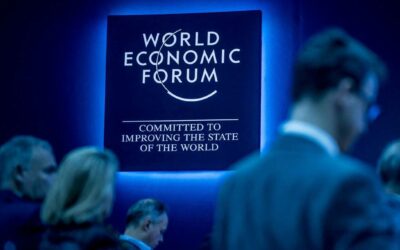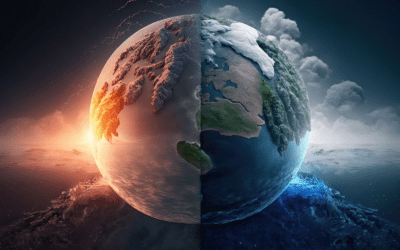by Indy Johar in Dark Matter… Furthermore, it is also becoming increasingly apparent that as we shift away from our current material economy — a system that has generated abundance for some segments of society and scarcity for others — we are entering an era marked by greater scarcity. This transition could potentially lead us towards a novel concept of abundance. However, this journey is not without its challenges. As we begin to encounter the limitations inherent in our economies, particularly the rise of net-zero-sum scenarios, the risk of conflict and war further escalates.
Chartbook 262 crisis tribes – on Europe now
By Adam Tooze in Chartbook…Revisiting the politics of trauma in Europe’s election year
Disinformation poses an unprecedented threat in 2024 — and the U.S. is less ready than ever
by Brandy Zadrozny in NBC News…The U.S. presidential election comes at a time of ideal circumstances for disinformation and the people who spread it.
Western US seeing extreme weather ‘unprecedented’ in 500 years
by Robyn White in Newsweek…These hot temperatures have increased the soil moisture, which in turn has contributed to the severity and frequency of drought. The researchers have linked the notable increase in drought to human activities.
Has the “Polycrisis” overwhelmed us?
by Mark Leonard in Project Syndicate…Today’s global crises are not only competing for policymakers’ finite attention; they are increasingly feeding one another in unpredictable ways. Add the uncertainty around this year’s high-stakes elections in the United States and elsewhere, and you have a recipe for a Davos meeting defined by angst and paralysis.
The 100-Year extinction panic is back, right on schedule
by Tyler Austin Harper in The New York Times…Climate anxiety, of the sort expressed by that student, is driving new fields in psychology, experimental therapies and debates about what a recent New Yorker article called “the morality of having kids in a burning, drowning world.” Our public health infrastructure groans under the weight of a lingering pandemic while we are told to expect worse contagions to come. The near coup at OpenAI, which resulted at least in part from a dispute about whether artificial intelligence could soon threaten humanity with extinction, is only the latest example of our ballooning angst about technology overtaking us.
Rising to the occasion: Practical hope in a global polycrisis
In the New School at Commonweal video, Host Michael Lerner joins Commonweal board member Katherine Fulton in conversation with Graham Leicester, who has pioneered new ways to navigate and even thrive in this complex era.
Friction is growing
by Bill McKibben in Resilience.org…The past decade of global natural catastrophes has been the costliest ever. Warmer temperatures have made storms worse and contributed to droughts that have elevated wildfire risk. Too many new homes were built in areas at risk of fire.
The world being on fire is swelling ‘catastrophe bonds’ to a record $45 billion—and it’s a key hedge fund strategy
by SHERYL TIAN TONG LEE et al, in Fortune….“I can’t tell you if there’s going to be a hurricane or earthquake this year, obviously,” said Hagood of Nephila Capital. “But what I can tell you is spreads are near historical highs in the sector. So broadly speaking, we believe the market is being well paid for the risk.”
In “The Ministry for the Future,” new ideas from ancient wisdom
By Forrest Brown in The Long Now Foundation….When we are bound in a system of reciprocity, not return on investment, we will be closer to being the kind of ancestors future people need.




